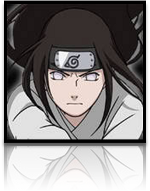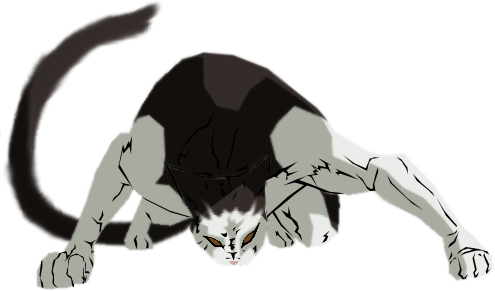Post by Shizuka on Apr 11, 2012 22:26:29 GMT -6
(c) KEIRA from origin-wolves-v2.proboards.com
1. Tense shift is a problem. If a piece starts in the past tense (Will walked into the room and took the seat next to Emma.), it must remain the past tense. If it's in present tense (Will walks into the room and takes the seat next to Emma.), keep it that way. Switching between tenses (Will walks into the room and took the seat next to Emma.) is awkward to read, and quite often confusing. So if you're going to write in present tense, stick with it -- and the same goes for past or future tense.
2. Mis-use of their (possession), there (place), and they're (they are).
3. Awhile means "for a short time" and may not be preceded by for. (ie: stay awhile). While means "for a period of time." (ie: stay for a while, stay a while).
4. A lot is always two separate words.
5. Its is used except when it is is intended. Then, we use it's (breaks possessive rule for clarity's sake).
6. Maybe is commonly misspelled -- think of it as a compound word.
7. You're (you are) and your (shows possession).
8. That refers to things; who refers to people.
9. Alright is a common misspelling for all right. Try to remember to use the all right form.
10. Then means "next; immediately after"; than is used to make comparative statements. (ie. First we went shopping, then we ate lunch.)
(ie. I'd rather read than than write.)
11. Mother and father are only capitalized if you are addressing that person directly. "Mother, will you hand me that book, please?") "I gave the case to my father.)
12. Accept means "to receive something" (ie. I accepted the gift.). Except means "with the exclusion of" (ie. I ate them all except two.)
13. Affect means "to have an influence on; bring about a change in" (ie. How did the fire affect their business?). Effect means "something brought about by a cause" (ie. The effect of the fire was devestating.).
14. Passed is the past tense of the word pass. (ie. Julia passed the test with flying colours.) Past means "no longer current or just gone by." (ie. He has put the accident in his past.)
15. ... (ellipsis) indicates an ommision of a word or words. (note: always three periods, except when the ellipsis comes at the end of a complete sentence, then a fourth dot is added for a period ....)
16. Watch your quotations. The punctuation of speech always lies within the quotation marks.
17. Underline titles of books (To Kill a Mockingbird) but put quotation marks around the titles of short stories ("The Veldt").
18. lay vs. lie lay means "to put; to place" and its forms are: lay, laid, (has) laid, laying.
lie means "to stretch out or recline" and its forms are: lie, lay, (has) lain, lying.
We rarely use lain because it doesn't sound "right", but we need to practice it so it becomes natural.
19. In means moving within a certain place. (ie. He ran in the room - He ran inside the room.) Into means it started in one place and ended in another. (ie. He ran into the room - He was outside the room first.)
20. who/whom who is the subject form. Try to substitute he into the sentence.
whom is the object form. Try to substitute him into the sentence. ie. You gave it to (who, whom)? The answer would be whom because you would substitute him.
(Who, whom) is coming to your party? The answer is who because you would substitute he.
21. Misplaced clauses - describing clauses which are located in the wrong position. Tommy heard his mother call up the stars (just two seconds later), it was breakfast time. Just two seconds later, Tommy heard his mother call up the stairs; it was breakfast time.
That lady sitting by herself (with the rose). That lady with the rose sitting by herself.
22. Good vs. Well
Good - something is good. (adjective)
Well - something is done well. (adverb)
23. Abbreviations and & symbols have no place in a good copy.
24. When writing something on paper, or with the intent to print, indent paragraphs about five spaces. Some students indent too little, others too much. When in doubt, use the width of your thumbnail.
25. Check carefully all sentences that begin with and, but, then, so, to make sure what follows is a complete sentence and not a sentence fragment. Avoid overuse of these words.
26. Dividing words at the end of lines should be by syllable. Do not divide short words.
27. Check a homophone list to make sure you use the correct form of the word.
28. Could of = could have.
29. Allowed = permitted. Aloud = out loud.
30. Woman = one female person. Women = more than one female person.
1. Tense shift is a problem. If a piece starts in the past tense (Will walked into the room and took the seat next to Emma.), it must remain the past tense. If it's in present tense (Will walks into the room and takes the seat next to Emma.), keep it that way. Switching between tenses (Will walks into the room and took the seat next to Emma.) is awkward to read, and quite often confusing. So if you're going to write in present tense, stick with it -- and the same goes for past or future tense.
2. Mis-use of their (possession), there (place), and they're (they are).
3. Awhile means "for a short time" and may not be preceded by for. (ie: stay awhile). While means "for a period of time." (ie: stay for a while, stay a while).
4. A lot is always two separate words.
5. Its is used except when it is is intended. Then, we use it's (breaks possessive rule for clarity's sake).
6. Maybe is commonly misspelled -- think of it as a compound word.
7. You're (you are) and your (shows possession).
8. That refers to things; who refers to people.
9. Alright is a common misspelling for all right. Try to remember to use the all right form.
10. Then means "next; immediately after"; than is used to make comparative statements. (ie. First we went shopping, then we ate lunch.)
(ie. I'd rather read than than write.)
11. Mother and father are only capitalized if you are addressing that person directly. "Mother, will you hand me that book, please?") "I gave the case to my father.)
12. Accept means "to receive something" (ie. I accepted the gift.). Except means "with the exclusion of" (ie. I ate them all except two.)
13. Affect means "to have an influence on; bring about a change in" (ie. How did the fire affect their business?). Effect means "something brought about by a cause" (ie. The effect of the fire was devestating.).
14. Passed is the past tense of the word pass. (ie. Julia passed the test with flying colours.) Past means "no longer current or just gone by." (ie. He has put the accident in his past.)
15. ... (ellipsis) indicates an ommision of a word or words. (note: always three periods, except when the ellipsis comes at the end of a complete sentence, then a fourth dot is added for a period ....)
16. Watch your quotations. The punctuation of speech always lies within the quotation marks.
17. Underline titles of books (To Kill a Mockingbird) but put quotation marks around the titles of short stories ("The Veldt").
18. lay vs. lie lay means "to put; to place" and its forms are: lay, laid, (has) laid, laying.
lie means "to stretch out or recline" and its forms are: lie, lay, (has) lain, lying.
We rarely use lain because it doesn't sound "right", but we need to practice it so it becomes natural.
19. In means moving within a certain place. (ie. He ran in the room - He ran inside the room.) Into means it started in one place and ended in another. (ie. He ran into the room - He was outside the room first.)
20. who/whom who is the subject form. Try to substitute he into the sentence.
whom is the object form. Try to substitute him into the sentence. ie. You gave it to (who, whom)? The answer would be whom because you would substitute him.
(Who, whom) is coming to your party? The answer is who because you would substitute he.
21. Misplaced clauses - describing clauses which are located in the wrong position. Tommy heard his mother call up the stars (just two seconds later), it was breakfast time. Just two seconds later, Tommy heard his mother call up the stairs; it was breakfast time.
That lady sitting by herself (with the rose). That lady with the rose sitting by herself.
22. Good vs. Well
Good - something is good. (adjective)
Well - something is done well. (adverb)
23. Abbreviations and & symbols have no place in a good copy.
24. When writing something on paper, or with the intent to print, indent paragraphs about five spaces. Some students indent too little, others too much. When in doubt, use the width of your thumbnail.
25. Check carefully all sentences that begin with and, but, then, so, to make sure what follows is a complete sentence and not a sentence fragment. Avoid overuse of these words.
26. Dividing words at the end of lines should be by syllable. Do not divide short words.
27. Check a homophone list to make sure you use the correct form of the word.
28. Could of = could have.
29. Allowed = permitted. Aloud = out loud.
30. Woman = one female person. Women = more than one female person.



